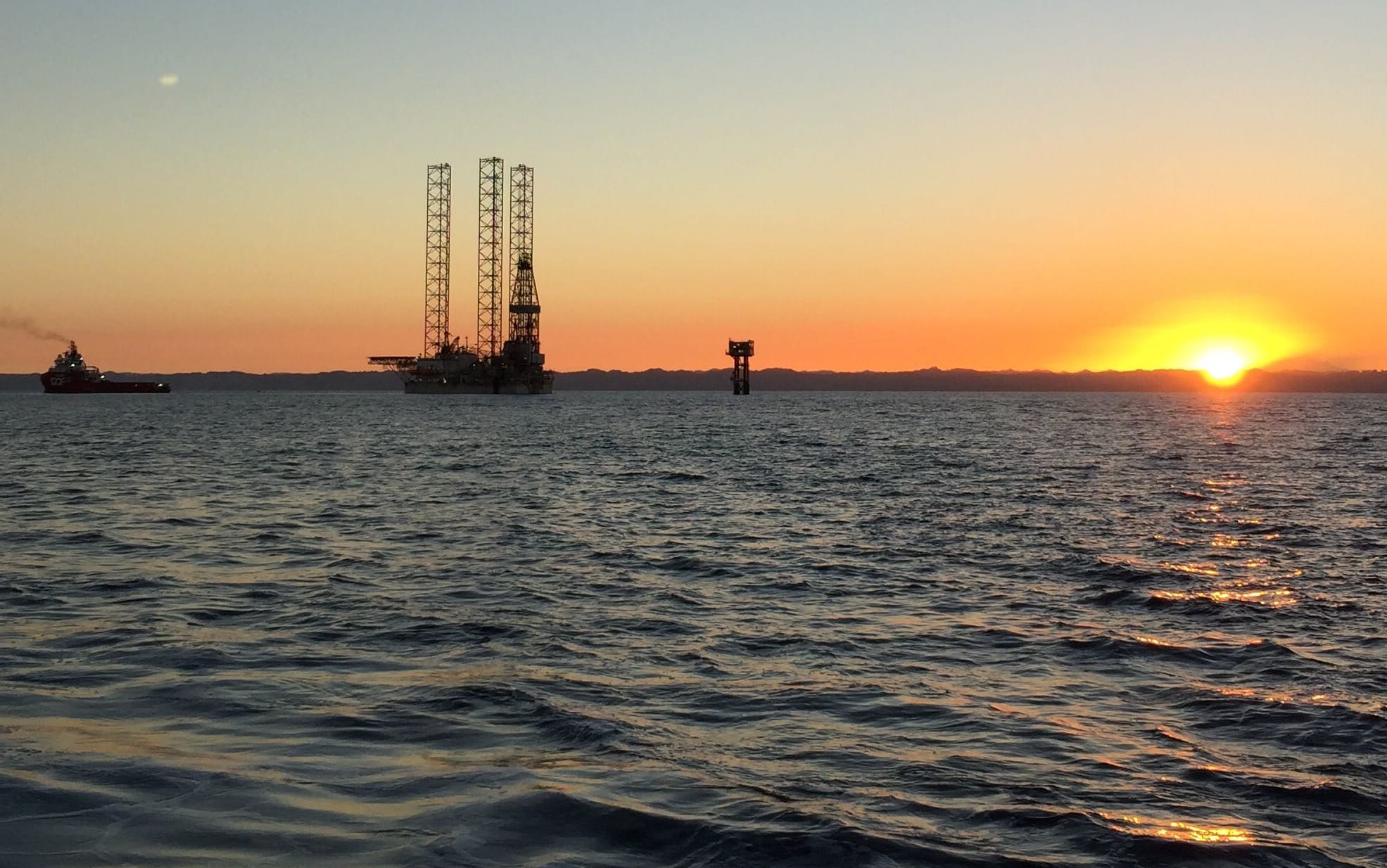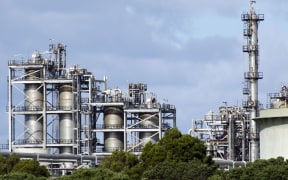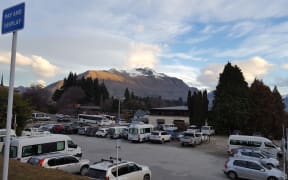Prime Minster Jacinda Ardern has launched a plan for Taranaki to develop its hydrogen industry, offering a greener energy alternative.

Taranaki already produces hydrogen from its natural gas resources. Photo: RNZ / Robin Martin
The H2 Taranaki Roadmap describes the region's potential to become a global leader in hydrogen production and use.
In New Plymouth today, Ms Ardern officially launched the roadmap, which was funded by New Plymouth District Council, Hiringa Energy, Venture Taranaki, and the government's Provincial Growth Fund.
Venture Taranaki chief executive Justine Gilliland said existing expertise in the energy sector could be used to develop the hydrogen industry.
Hydrogen can be used as a fuel, particularly for heavy vehicles; as a feedstock; for products such as urea or methanol; and to store electrical energy for weeks or years.
"Hydrogen is already produced in Taranaki from natural gas," Ms Gilliland said.
"The Roadmap forecasts that in future it will be increasingly produced using electricity to split water, with the only emission being oxygen."
The opportunity for New Zealand to produce hydrogen from renewable electricity had generated strong interest in export markets, she said.
"Hydrogen offers Taranaki an enormous economic opportunity to be extremely well positioned as we head into a low-emissions future."
Roadmap author Andrew Clennett from Taranaki-based Hiringa Energy said the hydrogen industry would help safeguard jobs in the region.
"Taranaki is very fortunate with its natural resources, infrastructure, and the forward thinking leadership shown by our regional officials and industry," Mr Clennett said.
"Hiringa is working with partners to develop a number of exciting projects that will help future-proof jobs in the region, while contributing to New Zealand's future energy needs."
Mr Clennett said it was important the region acted now to create and capture the opportunities offered by the transition to a low-emissions economy.





